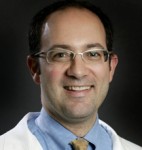Financial and operational stresses at Jewish Hospital likely to be taking a toll on one of the headline partnerships between the Hospital and the University of Louisville. Increasing dependence on Medicaid patients and a blossoming load of uncompensated care may be blocking access for the medically indigent and recipients of color for at least some solid organ transplants such as heart and liver.
Since the middle 1980s when I came to Louisville, Jewish Hospital has branded itself as a high tech “Heart Hospital.” It promotes the early adoption of high-technology. Indeed, a few years ago it received a special designation as a heart hospital in Kentucky from U.S. News & World Report that it would not have received had it not had a cardiac transplant program. In the middle 1990s, the University of Louisville formally shifted the private practice activities of its cardiologists to Jewish Hospital. The transplant surgeons at Jewish, to my knowledge, all have formal University faculty appointments. Jewish Hospital and the University of Kentucky Hospital are the only two hospitals in the state with a Certificate of Need (CON) for adult human solid-organ transplantation. (The University of Louisville does not own this CON for transplant.) Accordingly, this high-profile program is both important for, and a marker of the institutional health of both Louisville institutions.
For this and for other reasons, I have been writing about Kentucky’s transplant programs for the last few years. Most medical schools with a major clinical medical center consider having a transplant program as an important part of their service profile. I became concerned that although in the 1990s through 2010, Jewish Hospital performed the most such organ transplants in Kentucky, that a steadily-growing UK program overtook our own as early as 2010. My academic pride was injured. My concern included that a weakening Jewish Hospital was losing the resources or the will to continue this important program. It is after all an expensive undertaking. Continue reading “Louisville’s Human Organ Transplant Program Stagnates As Lexington’s Grows”

